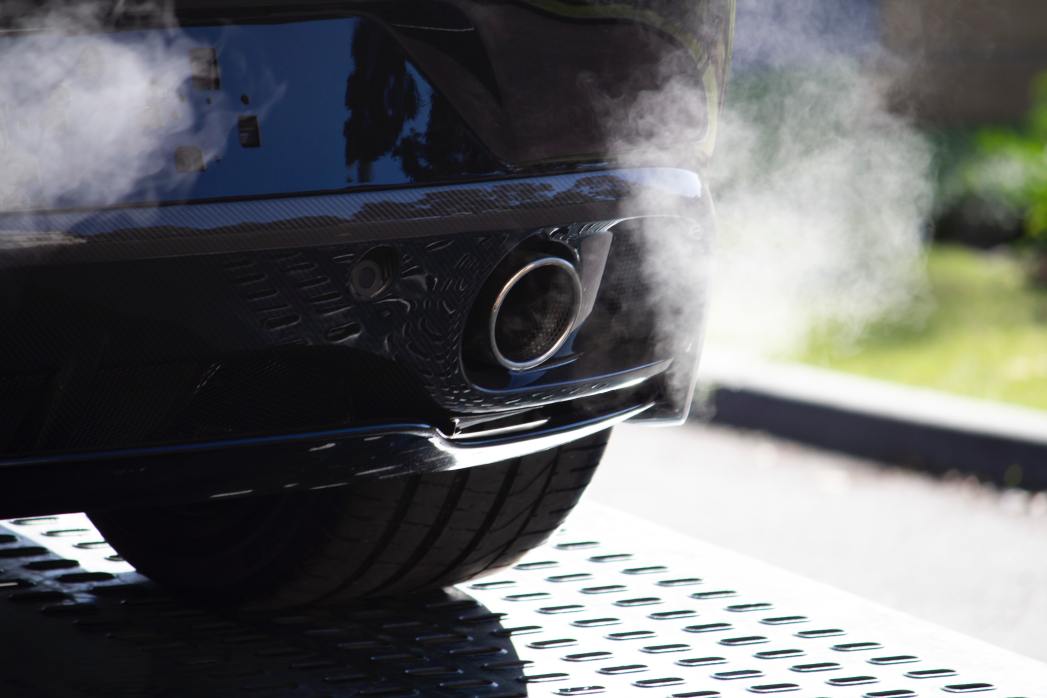- Greenhouse gas emissions nationwide fell by 2 percent last year, to 1991 levels no thanks to transportation. Americans drove and flew more, increasing transportation's emissions by 1.6 percent (Jalopnik). The decline was mostly attributed to replacing coal with cleaner energy sources (CNN).
- Lowering speed limits is an easy way to reduce vehicle emissions because it cuts into stop-and-start traffic, in addition to making streets safer. (Policy Options)
- A sustainable transportation hierarchy prioritizes safe, affordable and environmentally friendly modes like walking and biking over cars, rather than prioritizing speed. (Planetizen)
- In contrast to the 21 states suing the federal government over merely reporting transportation emissions, states like Colorado, Michigan and Oregon are already working to cut them. (Smart Cities Dive)
- Uber and Lyft now say that an upcoming Biden administration rule reclassifying contract workers as employees won't affect their drivers. (Market Watch)
- Far from being a "train to nowhere," California's truncated high-speed rail line has the potential to transform Fresno and the rest of the Central Valley. (Cal Matters)
- Denver's Regional Transportation District hopes that lowering fares and simplifying the fare system will entice more people to ride transit. (Westword)
- Austin is aggressively fighting a lawsuit seeking to halt construction of a 10-mile light rail network. (KUT)
- One of Minneapolis' busiest and shabbiest light rail stations could be renovated as early as next year. (Star Tribune)
- The Atlanta city council approved a $1 million e-bike rebate program, with most of the money earmarked for low-income residents. (AJC)
- A metro Detroit city is about to start ticketing motorists who parking in Woodward Avenue's new bike lanes. (Click on Detroit)
- Boston transit workers were able to clean up a historic streetcar after vandals tagged it with graffiti. (Globe)
- San Diego police are looking for whoever destroyed a ghost bike memorializing a local father who was hit and killed while riding his bike. (10 News)
- Toronto is considering expanding a discounted bikeshare program for low-income residents. (CBC)
- Wales is about to start enforcing a new 20-mile-per-hour default speed limit. (BBC)
Today's Headlines
Thursday’s Headlines Are Still Dirty
It looks increasingly likely that the U.S. won't meet its climate goals, because transportation emissions continue to rise even as energy production gets cleaner.

Stay in touch
Sign up for our free newsletter
More from Streetsblog USA
Tuesday’s Headlines Are a Little Bit Safer
Traffic deaths are down about 12 percent, which the National Safety Council attributes to new technology and infrastructure investments.
Could Refurbished E-Bikes Be the Secret Weapon of the Livable Streets Movement?
A high-quality used market could be the boost America needs to get would-be riders off the sidelines and into the saddle, a new report argues.
How the ‘Little Free Pantry’ Can Help Feed the Hungry Without Requiring Them to Drive
Researchers are trying to reduce the mobility barrier to food by bringing it directly to neighborhoods.
Exactly How Much It Cost to Build the Average Parking Space In Your City
For new apartments, the research found that building required parking adds roughly $50,000 to $100,000 per unit, and disproportionately increases the cost to build smaller apartments.
Monday’s Headlines Took the Keys Away
A demographic disaster is coming as a generation of aging suburbanites become either dangerous drivers or trapped in their homes.
Why Anti-Trans Laws Are Terrible For Transportation, Too
A disturbing new Kansas law revokes trans people's driver's licenses. Here's how it will make our communities more dangerous.





